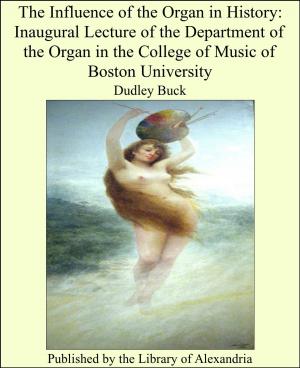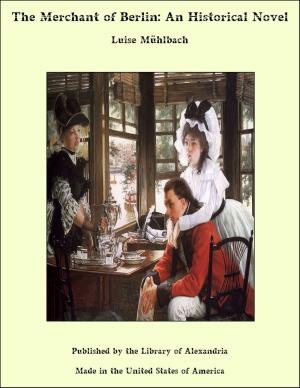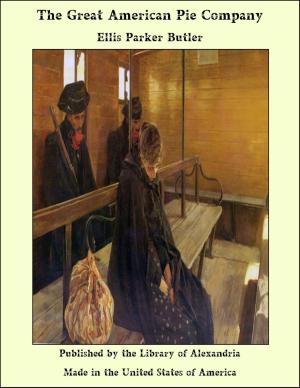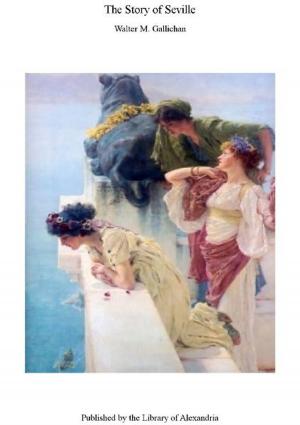The White Rose of Langley: A Story of the Olden Time
Nonfiction, Religion & Spirituality, New Age, History, Fiction & Literature| Author: | Emily Sarah Holt | ISBN: | 9781465626141 |
| Publisher: | Library of Alexandria | Publication: | March 8, 2015 |
| Imprint: | Language: | English |
| Author: | Emily Sarah Holt |
| ISBN: | 9781465626141 |
| Publisher: | Library of Alexandria |
| Publication: | March 8, 2015 |
| Imprint: | |
| Language: | English |
Maude looked up, looked down, and said nothing. But nature had not made her a cook, and the utmost Ursula Drew could do in that direction was to spoil a good milliner. So little Maude went with Ursula—into a very different sphere of life from any which she could hitherto remember. The first home which she recollected was her grandfather’s cottage, with the great elms on one side of it and the forge on the other, at which the old man had wrought so long as his strength permitted, and had then handed over, as the family inheritance, to his son. Since the world began for Maude, that cottage and the forge had always stood there, and its inhabitants had always been Grandfather, and Uncle David, and Aunt Elizabeth, and Cousin Hawise, and Cousin Jack, and Mother. At some unknown time in the remote past there had been a grandmother, for Maude had heard of her; but with that exception, there had never been anybody else, and her father was to her an utterly mythic individual. She had never heard such a person named until Ursula Drew inquired his calling. And then, one awful winter night, something dreadful had happened. What it was Maude never precisely knew. She only knew that there was a great noise in the night, and strange voices in the cottage, and cries for mercy; and that when morning broke Uncle David was gone, and was seen afterwards no more. So then they tried to keep on the old forge a little longer; but Grandfather was past work, and Cousin Jack was young and inexperienced, and customers would not come as they had done to brawny-armed Uncle David, to whose ringing blows on the anvil Maude had loved to listen. And one day she heard Aunt Elizabeth say to Grandfather that the forge brought in nothing, and they must go up to the castle and ask the great Lord there, whose vassals they were, to find them food until Jack was able to work: but the old man rose up from the settle and answered, his voice trembling with passion, that he would starve to death ere he would take food from the cruel hand which had deprived him of his boy. So then, Cousin Jack used to go roaming in the forest and bring home roots and wild fruits, and sometimes the neighbours would give them alms in kind or in money, and so for a while they tried to live. But Grandfather grew weaker, and Mother and Aunt Elizabeth very thin and worn, and the bloom faded from Cousin Hawise’s cheeks, and the gloss died away from her shining hair. And at last Grandfather died. And then Aunt Elizabeth went to a neighbouring franklin’s farm, to serve the franklin’s dame; and Cousin Jack went away to sea; and Maude could not recollect how they lived for a time. And then came another mournful day, when strange people came to the cottage and roughly ordered the three who were left to go away. They took Cousin Hawise with them, for they said she would be comely if she were well fed, and the Lady had seen her, and she must go and serve the Lady. And Maude never knew what became of her. But Mother wept bitterly, and seemed to think that Hawise’s lot was a very unhappy one. So then they set out, Mother and Maude, for London. The reasons for going to London were very dim and vague to Maude’s apprehension. They were going to look for somebody; so much she knew: and she thought it was some relation of Grandmother’s, who might perchance give them a home again. London was a very grand place, only a little less than the world: but it could not fill quite all the world, because there was room left for Pleshy and one or two other places. The King lived in London, who never did any thing all day long but sit on a golden throne, with a crown on his head, and eat bread and marmalade, and drink Gascon wine; and the Queen, who of course sat on another golden throne, and shared the good things, and wore minever dresses and velvet robes which trailed all across the room.
Maude looked up, looked down, and said nothing. But nature had not made her a cook, and the utmost Ursula Drew could do in that direction was to spoil a good milliner. So little Maude went with Ursula—into a very different sphere of life from any which she could hitherto remember. The first home which she recollected was her grandfather’s cottage, with the great elms on one side of it and the forge on the other, at which the old man had wrought so long as his strength permitted, and had then handed over, as the family inheritance, to his son. Since the world began for Maude, that cottage and the forge had always stood there, and its inhabitants had always been Grandfather, and Uncle David, and Aunt Elizabeth, and Cousin Hawise, and Cousin Jack, and Mother. At some unknown time in the remote past there had been a grandmother, for Maude had heard of her; but with that exception, there had never been anybody else, and her father was to her an utterly mythic individual. She had never heard such a person named until Ursula Drew inquired his calling. And then, one awful winter night, something dreadful had happened. What it was Maude never precisely knew. She only knew that there was a great noise in the night, and strange voices in the cottage, and cries for mercy; and that when morning broke Uncle David was gone, and was seen afterwards no more. So then they tried to keep on the old forge a little longer; but Grandfather was past work, and Cousin Jack was young and inexperienced, and customers would not come as they had done to brawny-armed Uncle David, to whose ringing blows on the anvil Maude had loved to listen. And one day she heard Aunt Elizabeth say to Grandfather that the forge brought in nothing, and they must go up to the castle and ask the great Lord there, whose vassals they were, to find them food until Jack was able to work: but the old man rose up from the settle and answered, his voice trembling with passion, that he would starve to death ere he would take food from the cruel hand which had deprived him of his boy. So then, Cousin Jack used to go roaming in the forest and bring home roots and wild fruits, and sometimes the neighbours would give them alms in kind or in money, and so for a while they tried to live. But Grandfather grew weaker, and Mother and Aunt Elizabeth very thin and worn, and the bloom faded from Cousin Hawise’s cheeks, and the gloss died away from her shining hair. And at last Grandfather died. And then Aunt Elizabeth went to a neighbouring franklin’s farm, to serve the franklin’s dame; and Cousin Jack went away to sea; and Maude could not recollect how they lived for a time. And then came another mournful day, when strange people came to the cottage and roughly ordered the three who were left to go away. They took Cousin Hawise with them, for they said she would be comely if she were well fed, and the Lady had seen her, and she must go and serve the Lady. And Maude never knew what became of her. But Mother wept bitterly, and seemed to think that Hawise’s lot was a very unhappy one. So then they set out, Mother and Maude, for London. The reasons for going to London were very dim and vague to Maude’s apprehension. They were going to look for somebody; so much she knew: and she thought it was some relation of Grandmother’s, who might perchance give them a home again. London was a very grand place, only a little less than the world: but it could not fill quite all the world, because there was room left for Pleshy and one or two other places. The King lived in London, who never did any thing all day long but sit on a golden throne, with a crown on his head, and eat bread and marmalade, and drink Gascon wine; and the Queen, who of course sat on another golden throne, and shared the good things, and wore minever dresses and velvet robes which trailed all across the room.















